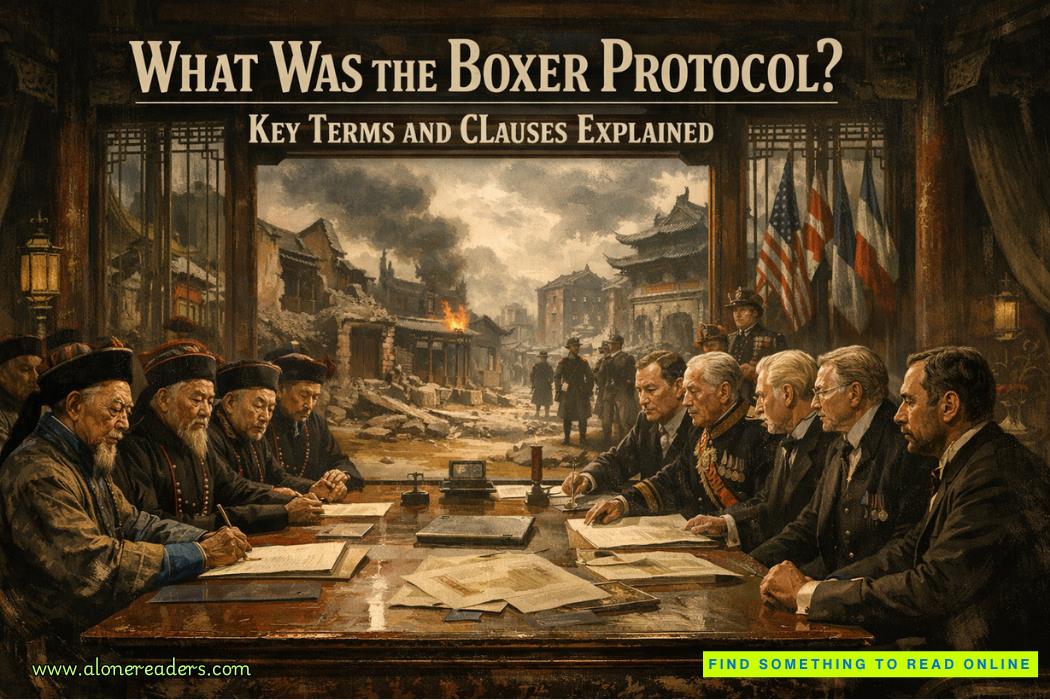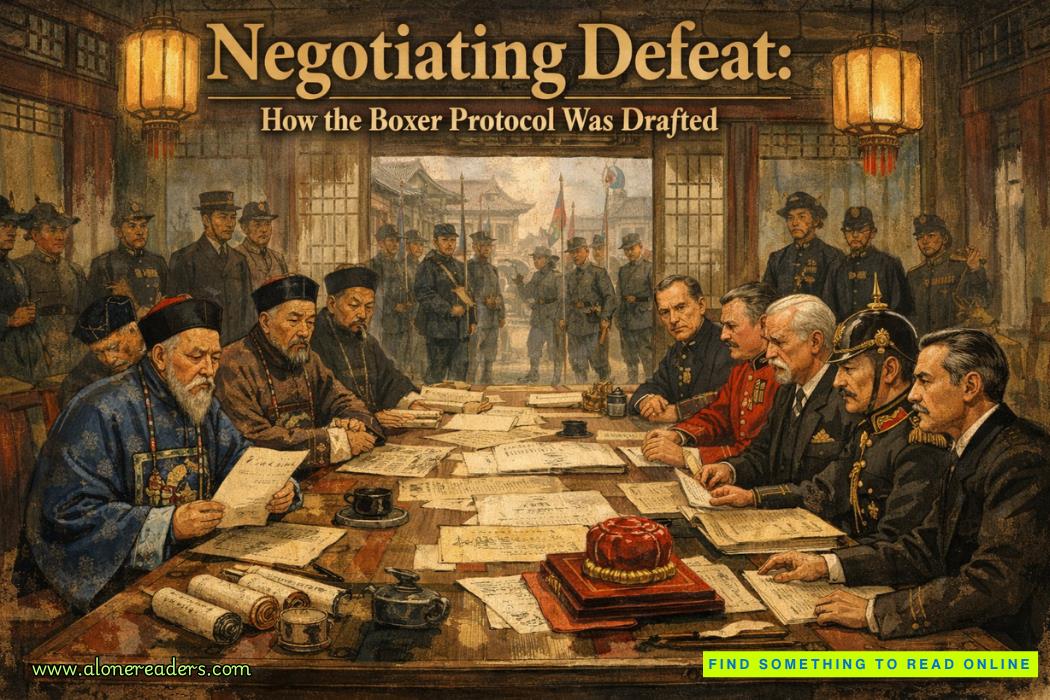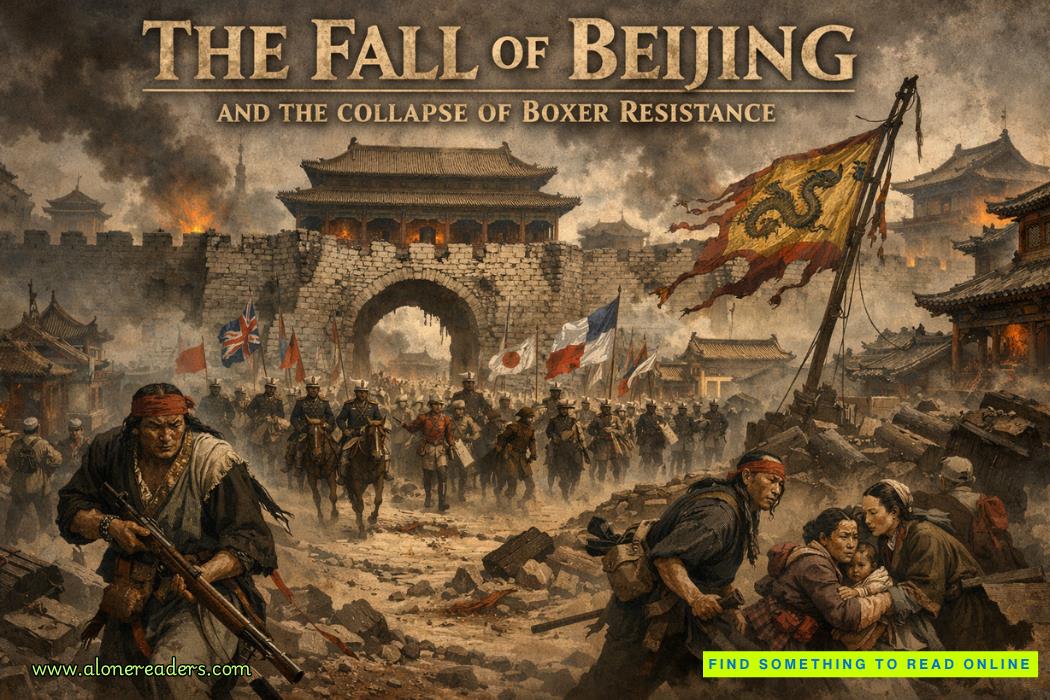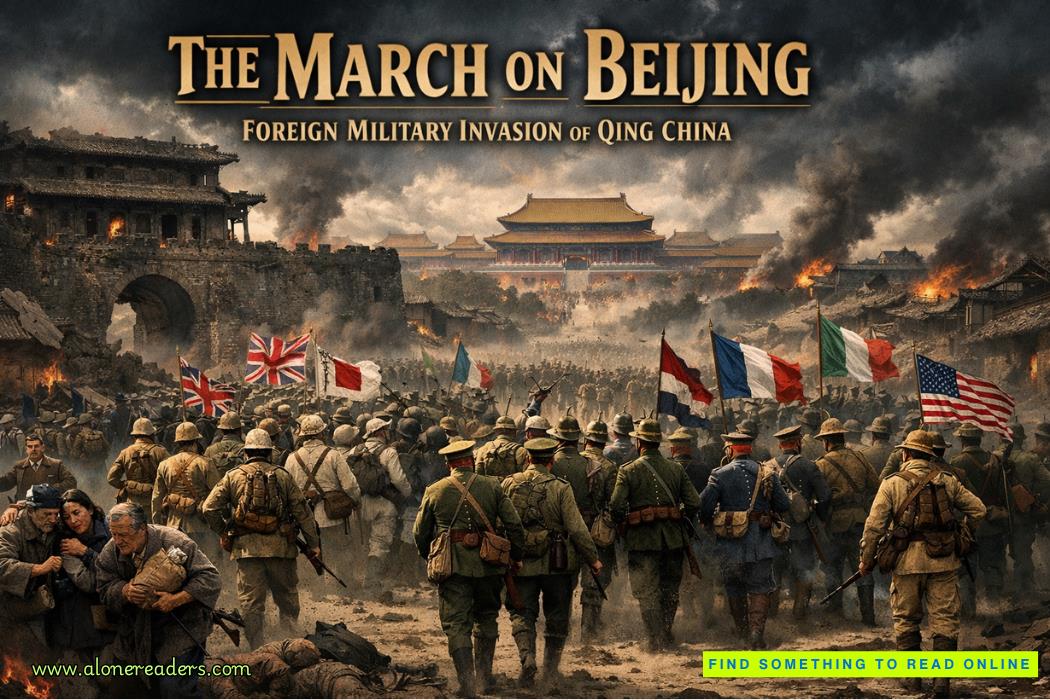Early the next morning, when the sky was stilla sleepy shade of pink, a knock came at the door.
This was highly unusual. Many of the villagers believed the most direct and efficient form of communication was to call out at the top of their lungs when passing by; some simply wandered straight inside without warning, armed with either a favor or snippet of gossip. My pulse picked up at the possibilities. Was it an official? Was there to be another war? Had something terrible happened?
My mother reached the door before I did, her robes wrapped hastily over her white inner garments like a cloak, still rubbing the sleep from her bleary eyes. When she opened it, I stifled a gasp.
There, standing before our crumbling, decades-old house, was the same young man from yesterday. My memory had not done his beauty justice, just as remembered pain was always duller than actual pain. He had changed his robes into something of a darker, more somber shade, and his hair was tied back tighter, accentuating the fine angles of his jaw and cheekbones. He looked… different.Older. Though he had not been warm toward me upon our first meeting, his stance had still been reasonably relaxed, his manner laced with some private touch of amusement. Now, all that was scoured away. I could detect no emotion in those intelligent, pitch-black eyes, nothing to suggest at why he had come.
Yet the pang in my chest, which was always worse upon waking, eased.
“Good morning,” he was saying to my mother, bowing low. “I hope I’m not intruding.”
“I— No,” Mother said, but I could sense her quiet alarm. “I’m sorry, but you are…?”
“Fanli,” he replied, and straightened. “Political and military advisor to King Goujian of Yue.”
This time, I was unable to suppress my surprise.Fanli.But of course—I should have known. All the rumors sang of him: the advisor with a mind sharper than blades and beauty finer than jade, only twenty-two years of age yet more accomplished than men twice as old. He had managed to impress the king when he was but a mere adolescent and quickly climbed his way up the ranks to become one of King Goujian’s most trusted ministers. There were already folktales about him, poems praising his name. He was, in the eyes of the Yue, incorruptible. The last pure thing under Heaven. He was said to have none of a commoner’s wanton wants and lowly desires; he was of the few who truly put the state before the self.
“Oh!” After a delayed beat, my mother quickly dropped into some attempt at a curtsy. So rarely did nobles venture into our village that there were no customs to look toward for reference, nothing to prepare us for this. “We are honored… Most honored to have you here…”
Fanli’s eyes moved past her shoulder to me, but there was no spark of recognition there. Only a calm, calculated curiosity. I remembered then that he could not possibly recognize me; he had only seen me by the river with my veil on. But then, his arrival made even less sense. What did he want?
“Is this the girl everyone calls Xishi?” he asked.
My mother paused, and then, with a new wariness, nodded. “Yes. My daughter.”
He had not looked away from me, and it was now to me alone that he spoke. “They were right,” he said evenly, studying me with a quiet, burning intensity. “You really are beautiful.” It did not sound like a compliment, designed to flatter and charm, but rather a confirmation of something.
I stayed silent, not yet recovered from my shock. I could not think of a fitting response anyhow. People always prefer the beauty who is oblivious, unaware of her own power, who blushes easily and is taken aback by strangers’ approval, who is soft and demure and lacking in just enough confidence so as to seek it out in the opinions of men. But these are such lies. All my life, the very same people had told me time and time again how gorgeous I was. How could I not know it? That was like growing up not knowing you were tall.
“Is there something you seek here?” Mother said, stepping in between us, a protective hand resting against the crook of my elbow. She squeezed once, lightly. It was our code, her way of letting me know everything would be all right.
“I’m afraid it is a rather long story,” Fanli said, breaking eye contact at last. I felt it like the snap of a thread. “Could I come in?”
I saw my mother hesitate, but of course she could not refuse him entry. He worked for the king—the king. And the king’s wish was law.
“Certainly. Xishi, lead him inside,” she said, moving away. “I’ll go boil some tea.”
The truth was, there was very little room for me to lead himanywhere. Only a few steps in, we came to a stop at the table, where he smoothed the back of his robes out, adjusted his broad sleeves, and sat gracefully on one of our low chairs. I sat across from him. The stillness between us felt solid. It threw everything else into clarity. From the other room, I could hear my mother scraping the tea leaves into the pot—she would be using the expensive tea, what we had been saving up for the Lunar Festival—and hissing something low and unintelligible at my father. The two of them emerged together later, my mother carrying the steaming clay pot on a tray, my father with a slightly dazed look on his face, as if unsure whether he was really awake.
“Thank you,” Fanli said as my mother filled his teacup, the rich, dark green fragrance of the leaves sweetening the air. The cup in fact belonged to me, but we had no spares. “And as for why I’m here—I was sent directly by King Goujian to seek out a potential bride of unmatched beauty.”
My pulse hammered harder.Bride.A word I had grown up hearing, yet here, with the king’s advisor sitting opposite me, the golden sun rising outside our window, it seemed to acquire a new meaning.
Mother and Father exchanged a look. “For—for you?” Mother asked, frowning. “Surely there are already plenty of women who wish to marry you, why must it—”
“No, you misunderstand me,” Fanli said, setting his tea down. “The bride would be for King Fuchai of the Wu Kingdom, as a tribute from the Yue. And after much searching, I believe Xishi would make the perfect candidate.”
I made a small, involuntary sound: of shock, or fury, or fear, I did not know. My gut churned at the mere mention of the name. Fuchai was infamous for his love of wine and women; he was said to have frequented every single brothel in the Wu capital, and took his personal pleasures more seriously than state affairs. Yet he hadcrushed our armies, defeated our king. He was the enemy of my people, the cause of our suffering.
He was why the soldiers had come.
Why Susu had been killed.
“What?” I burst out. “But he’s horrible.”
At the sound of my voice, Fanli looked at me with a new emotion. There it was, the recognition come too late. Something like sorrow, regret, even, flickered across his features before he collected himself. All this, in seconds. I doubted an onlooker would have even noticed the change, subtle as it was.
“It is certainly not a pleasant mission,” he continued, as if nothing had happened. Only his voice came out more restrained. “But you would be a bride only in name. In practice, you would be a spy—our spy. You would distract him from his duties, and influence him to our liking, all while gathering key information from within the palace. You would, in short, be the integral piece of our plan to take revenge on the Wu and conquer them for good.”















